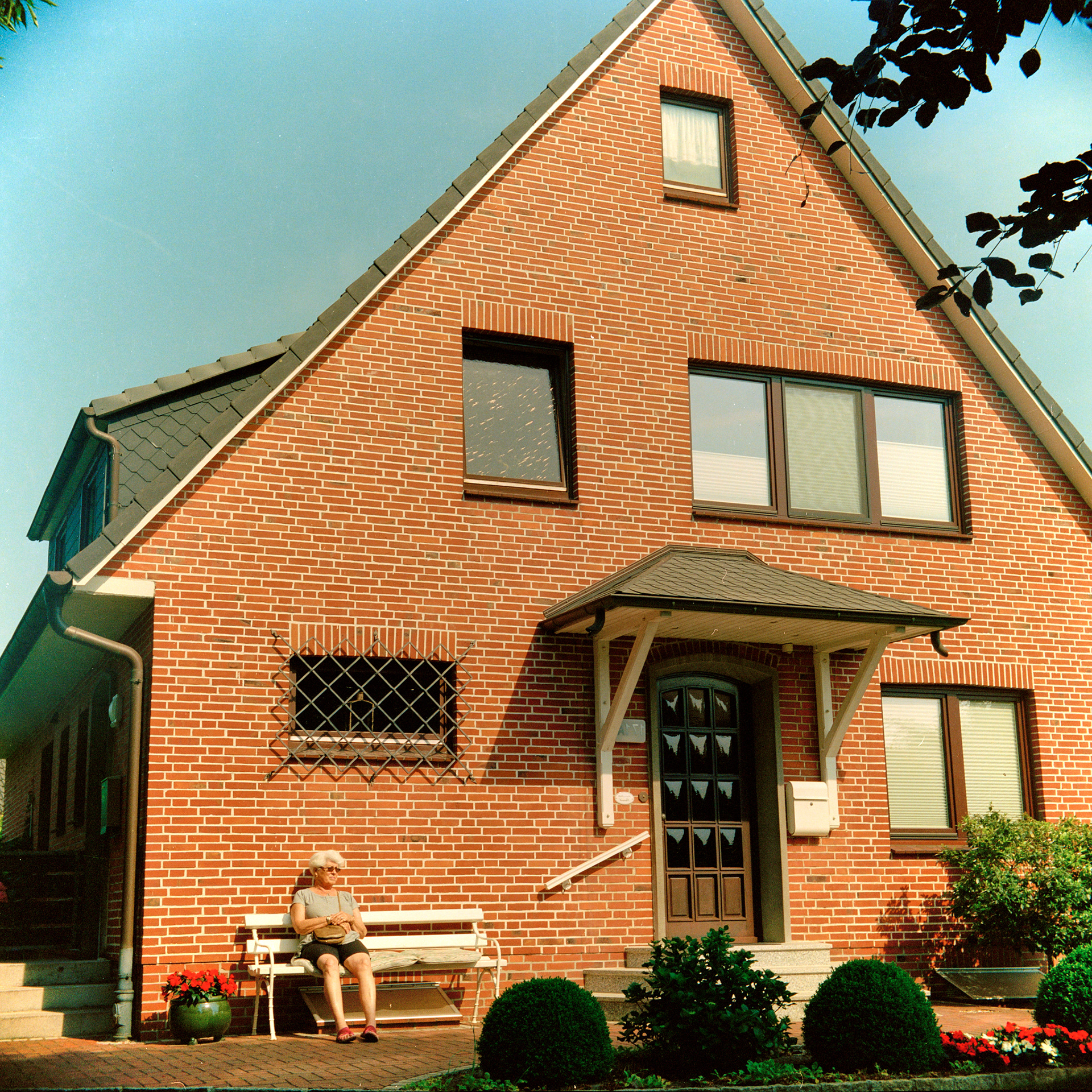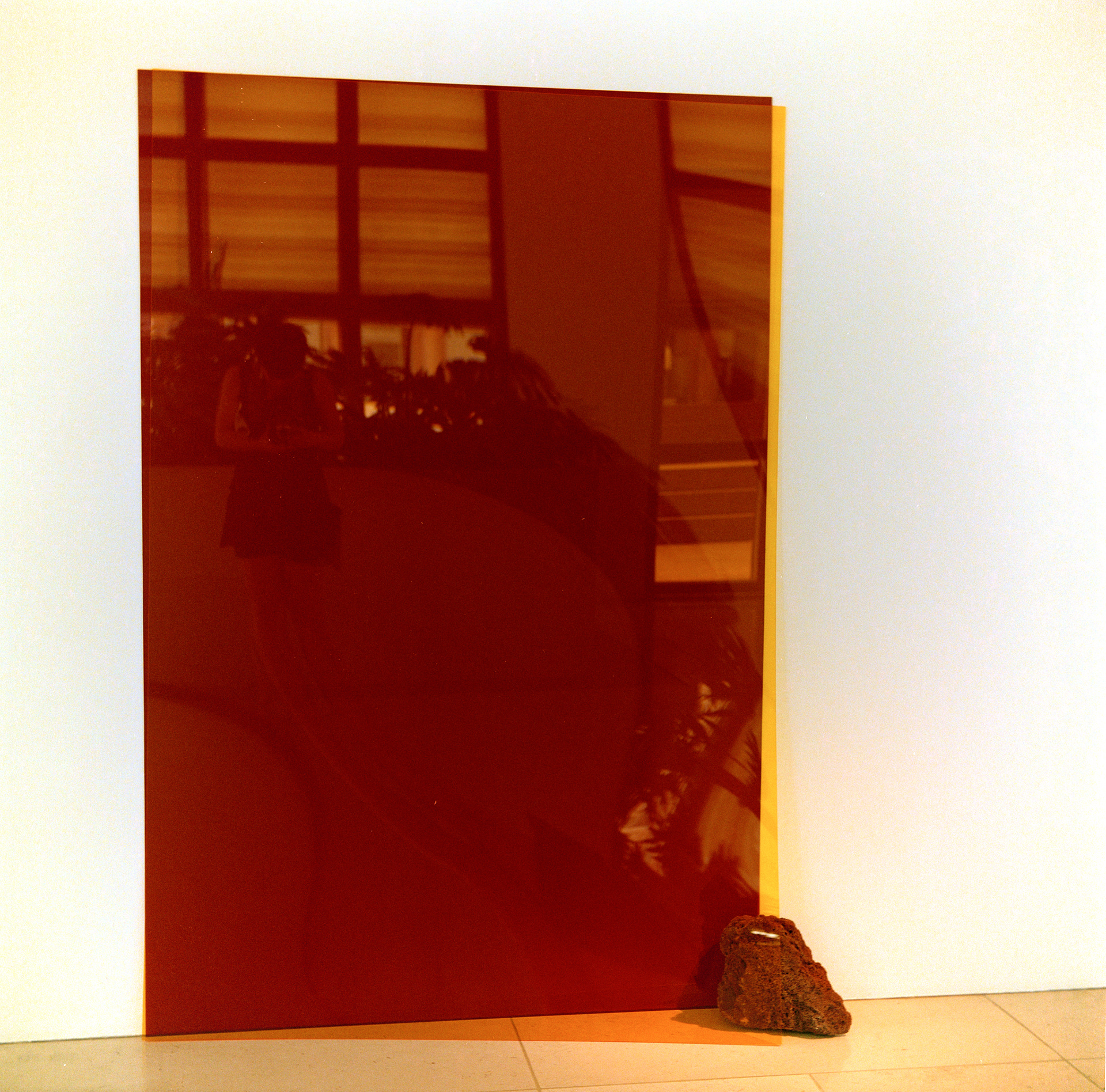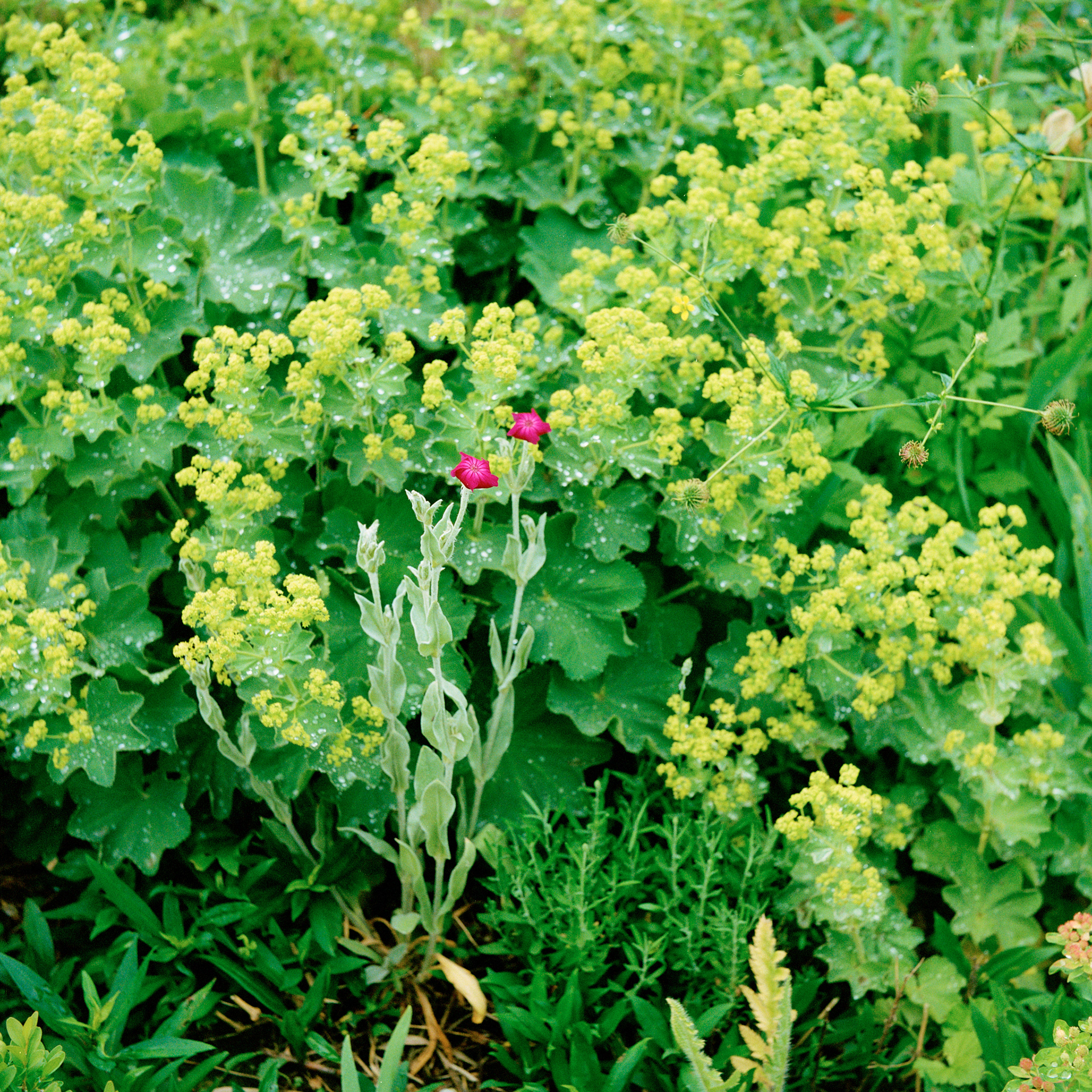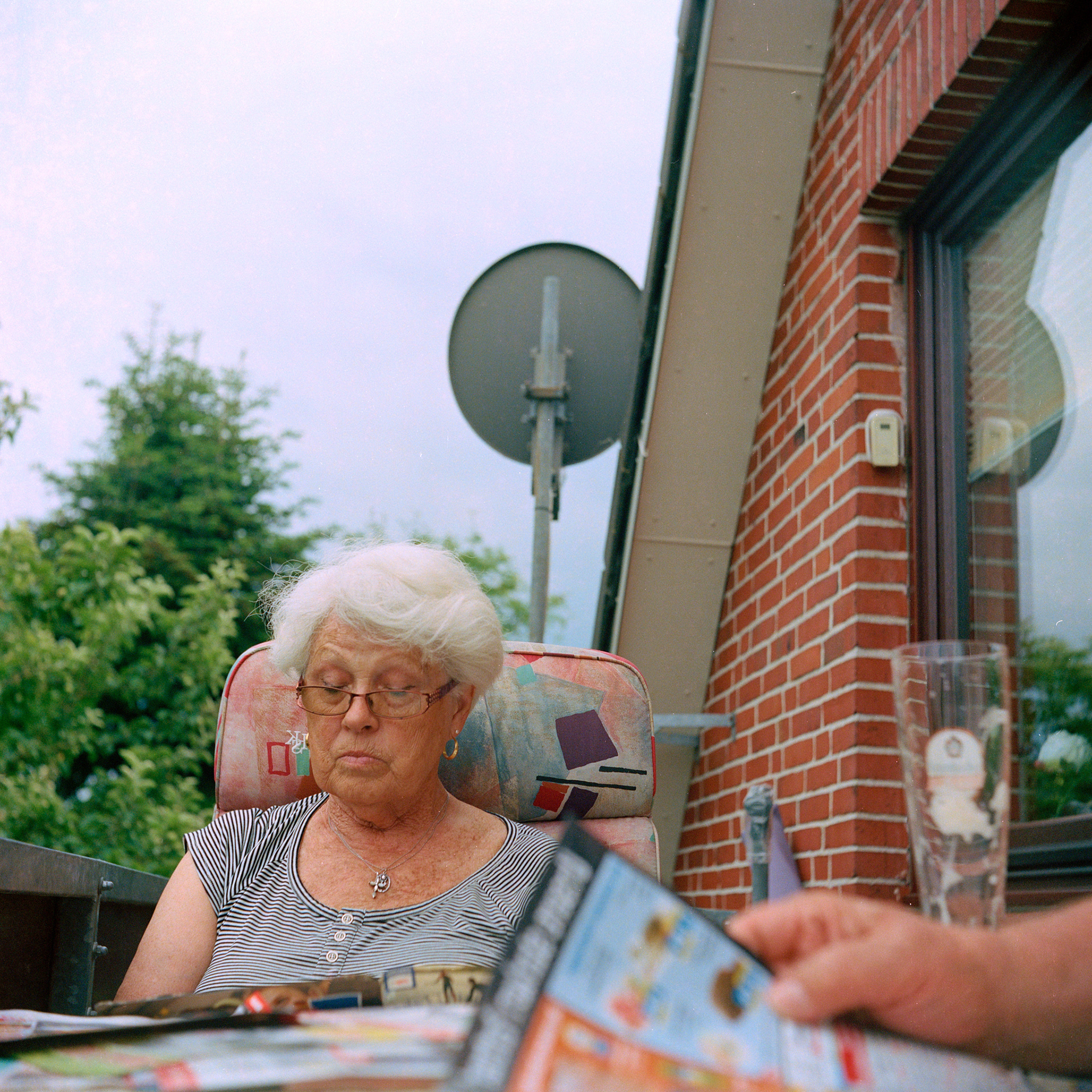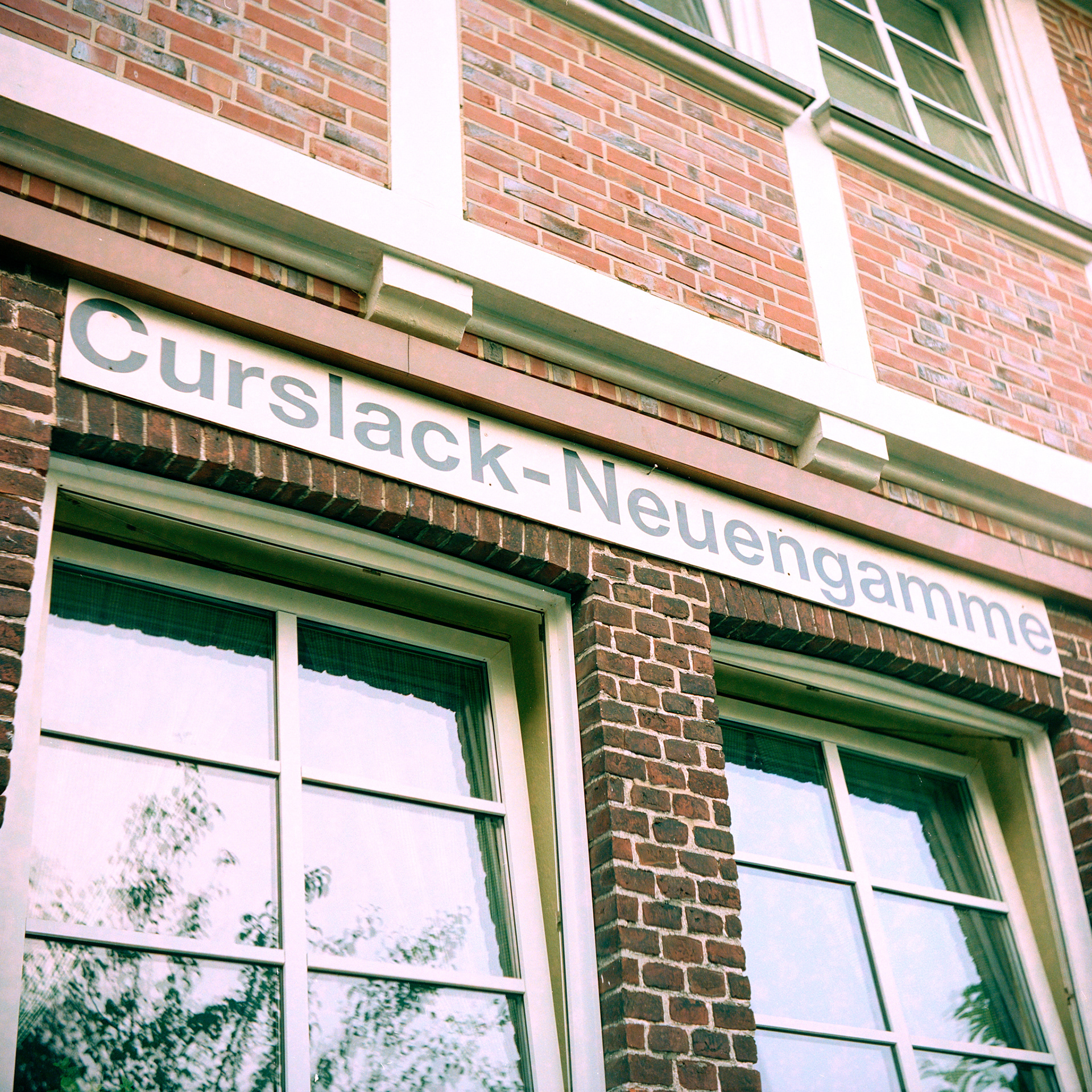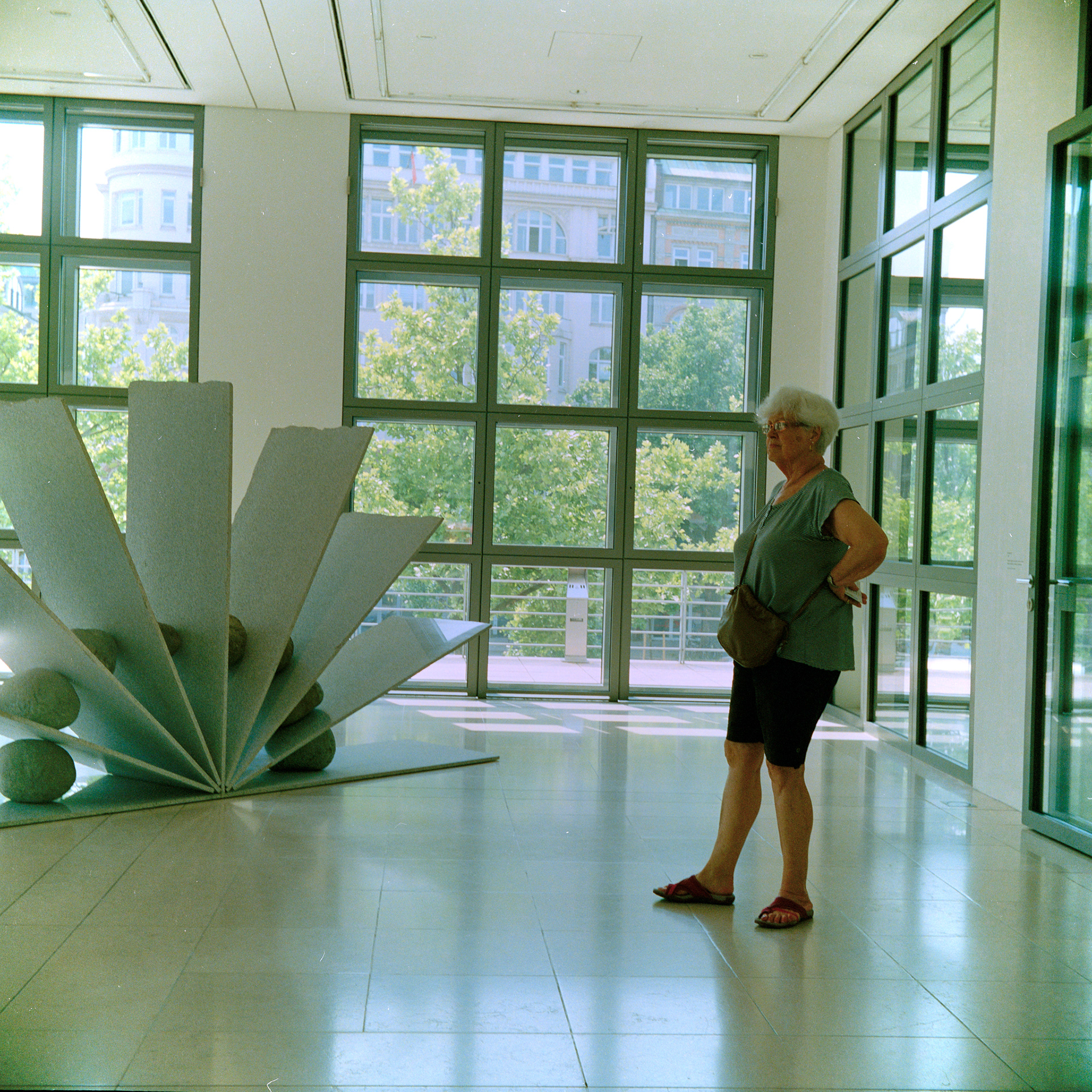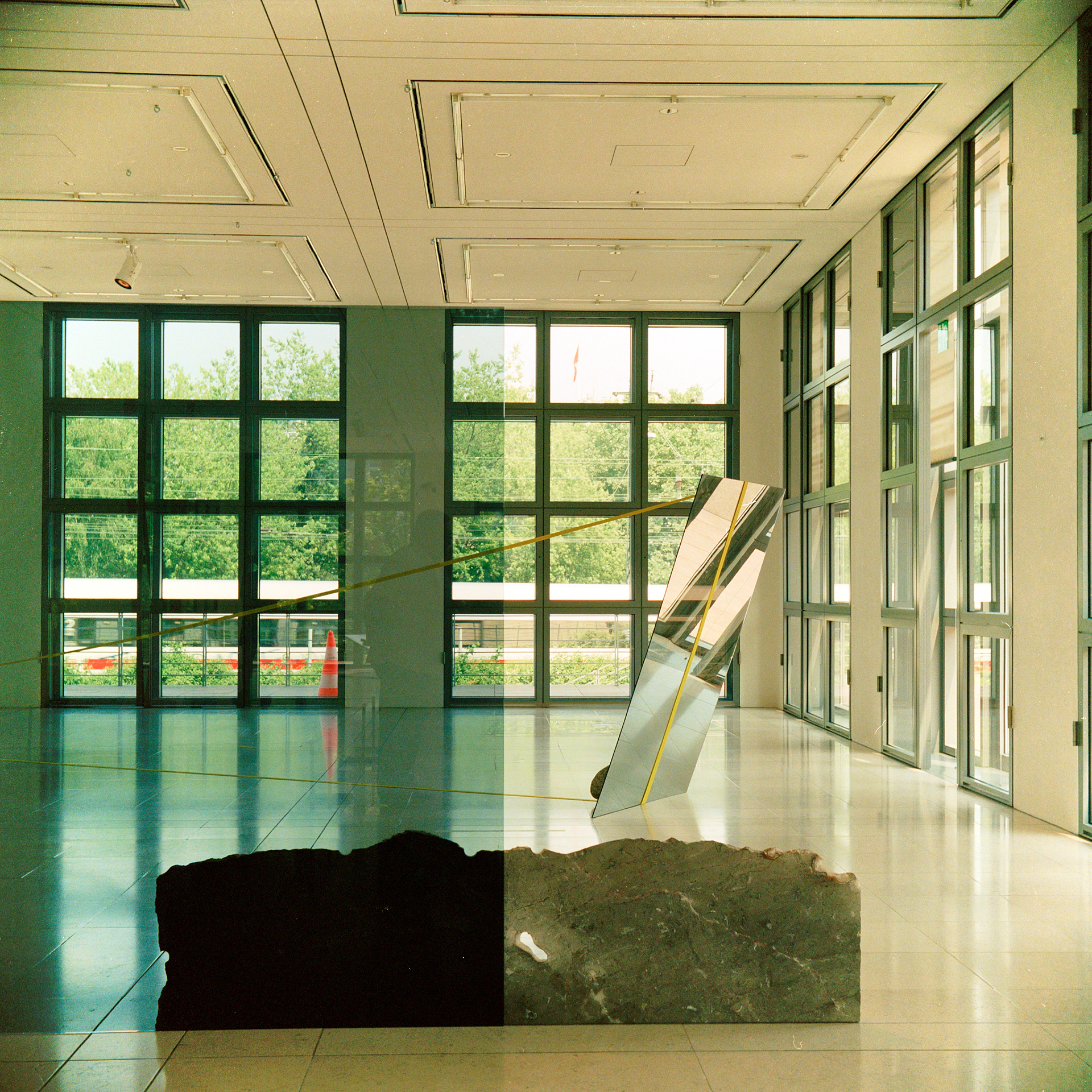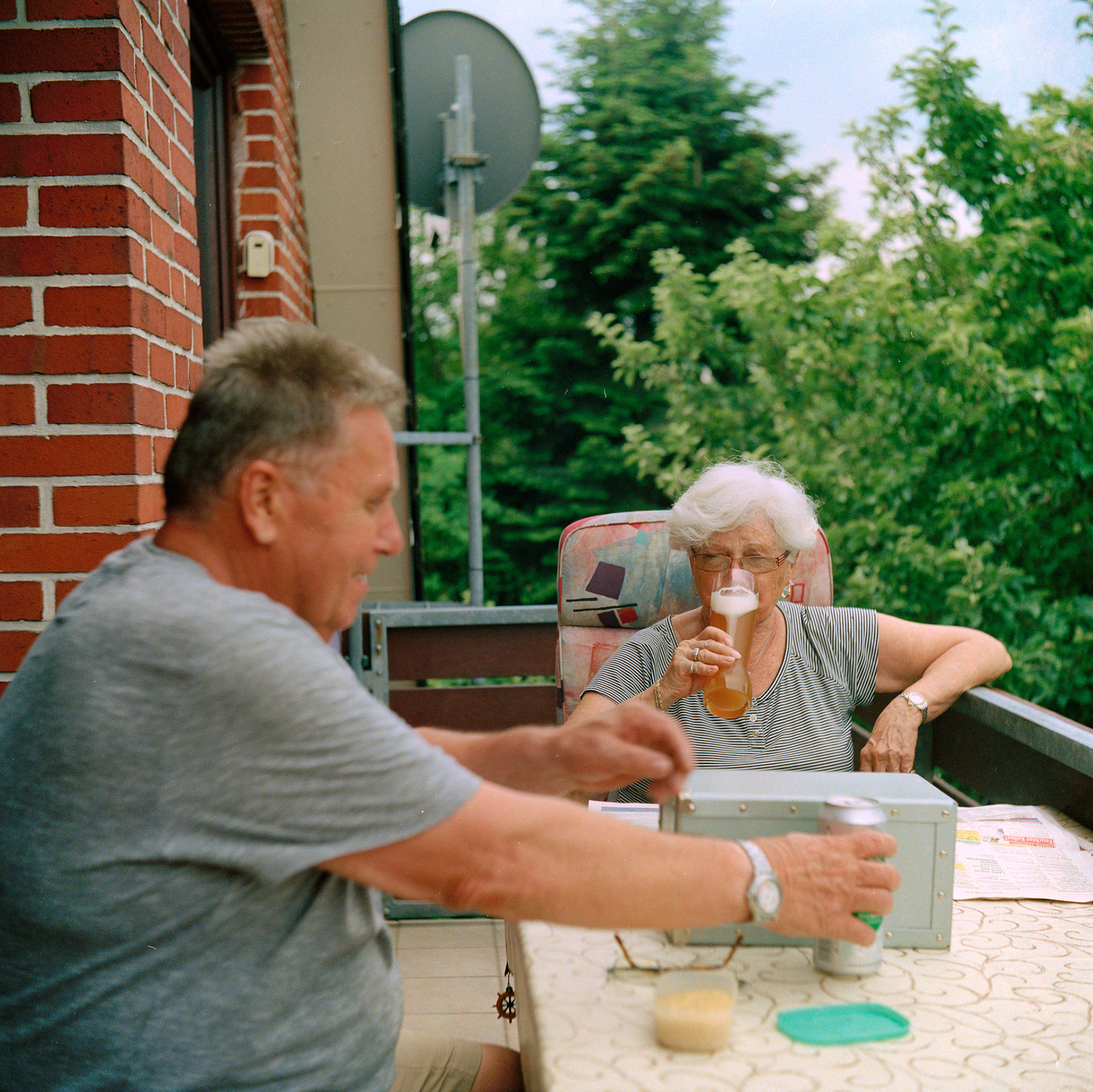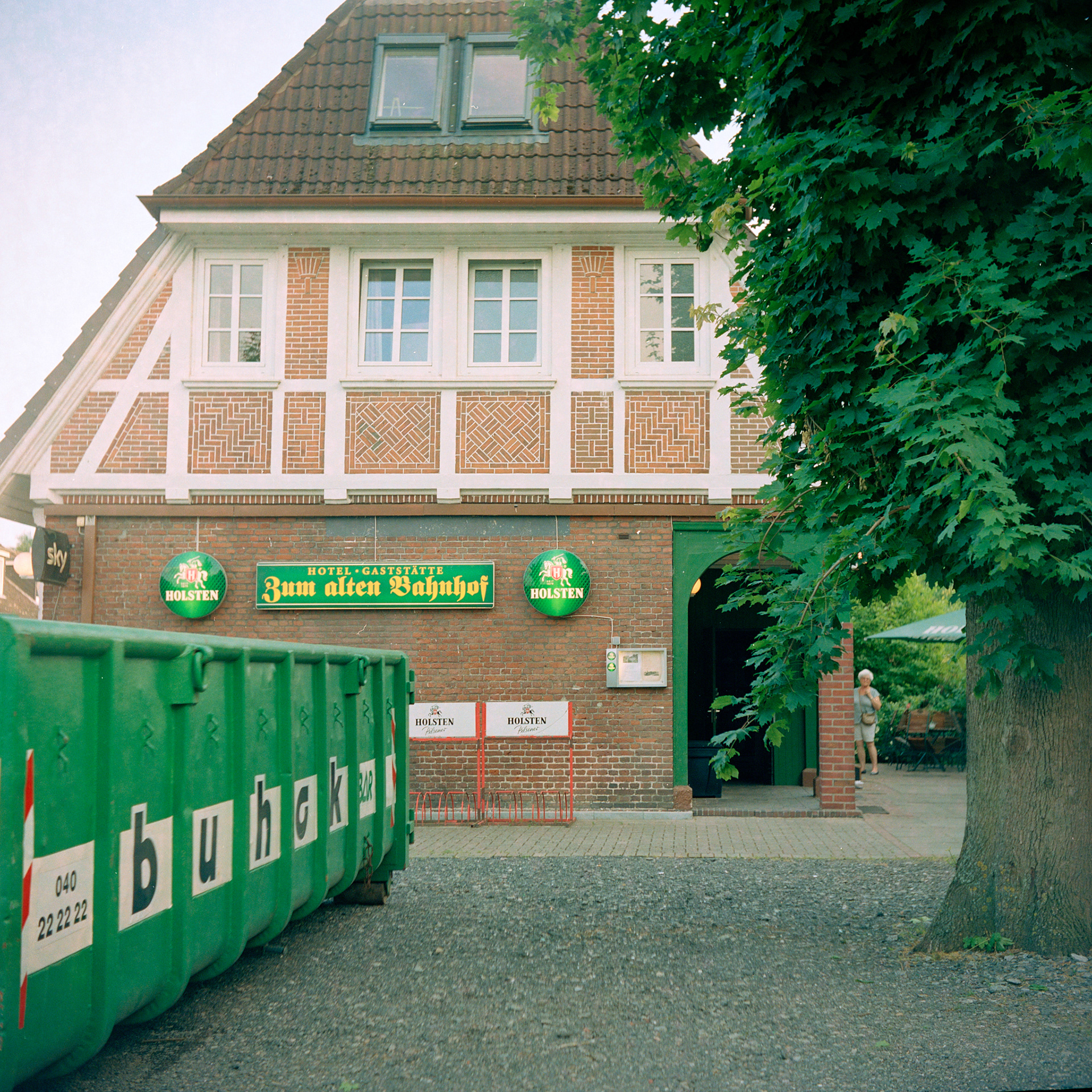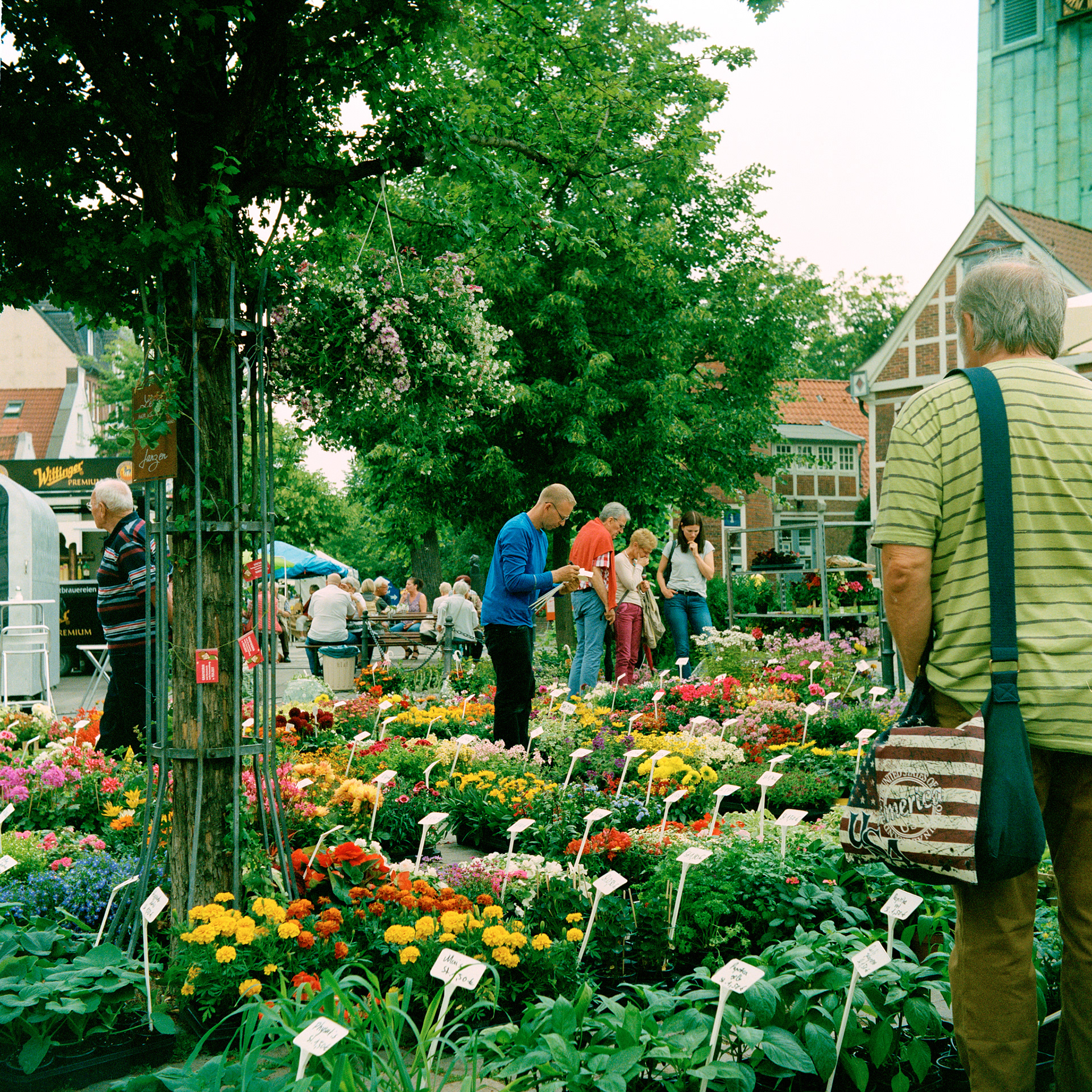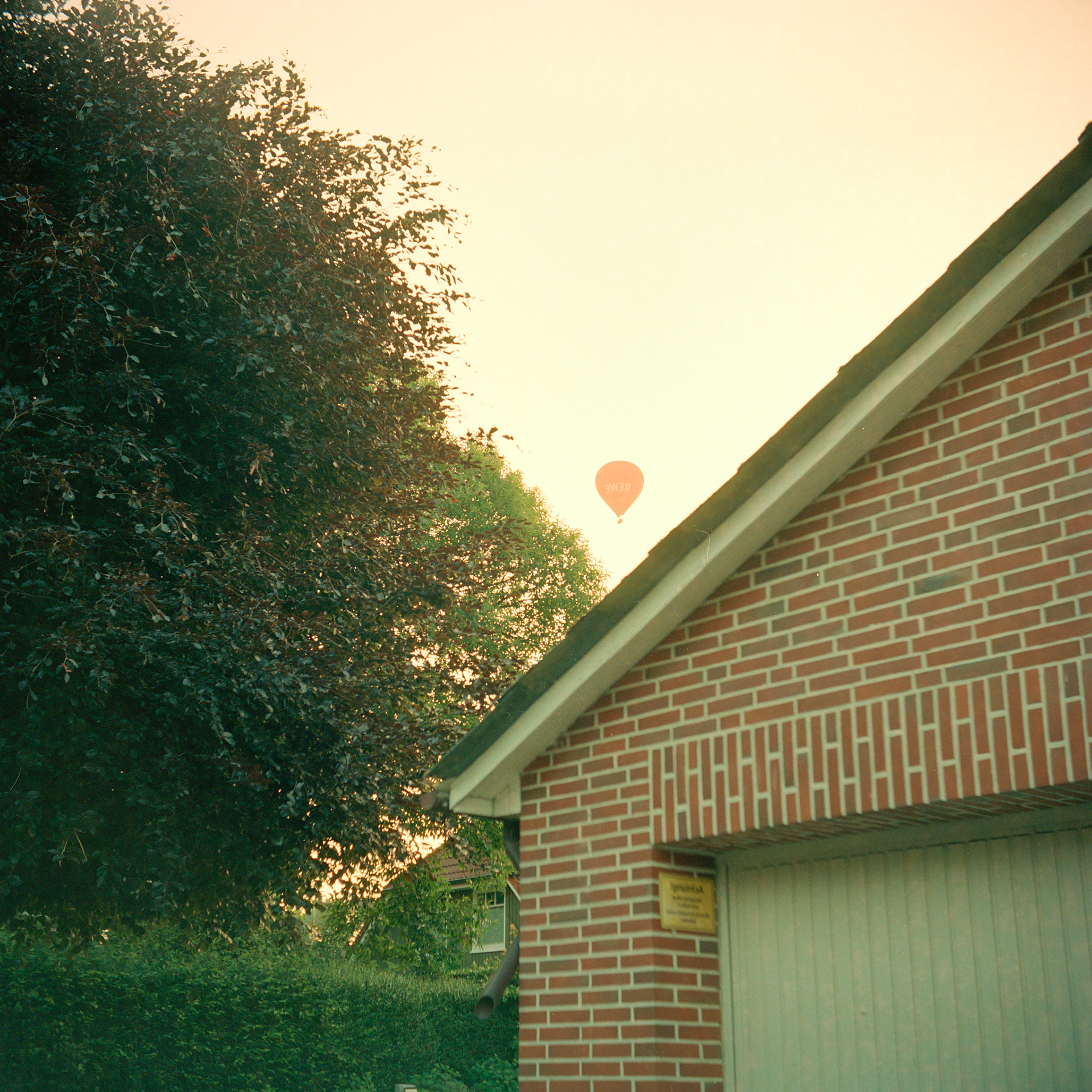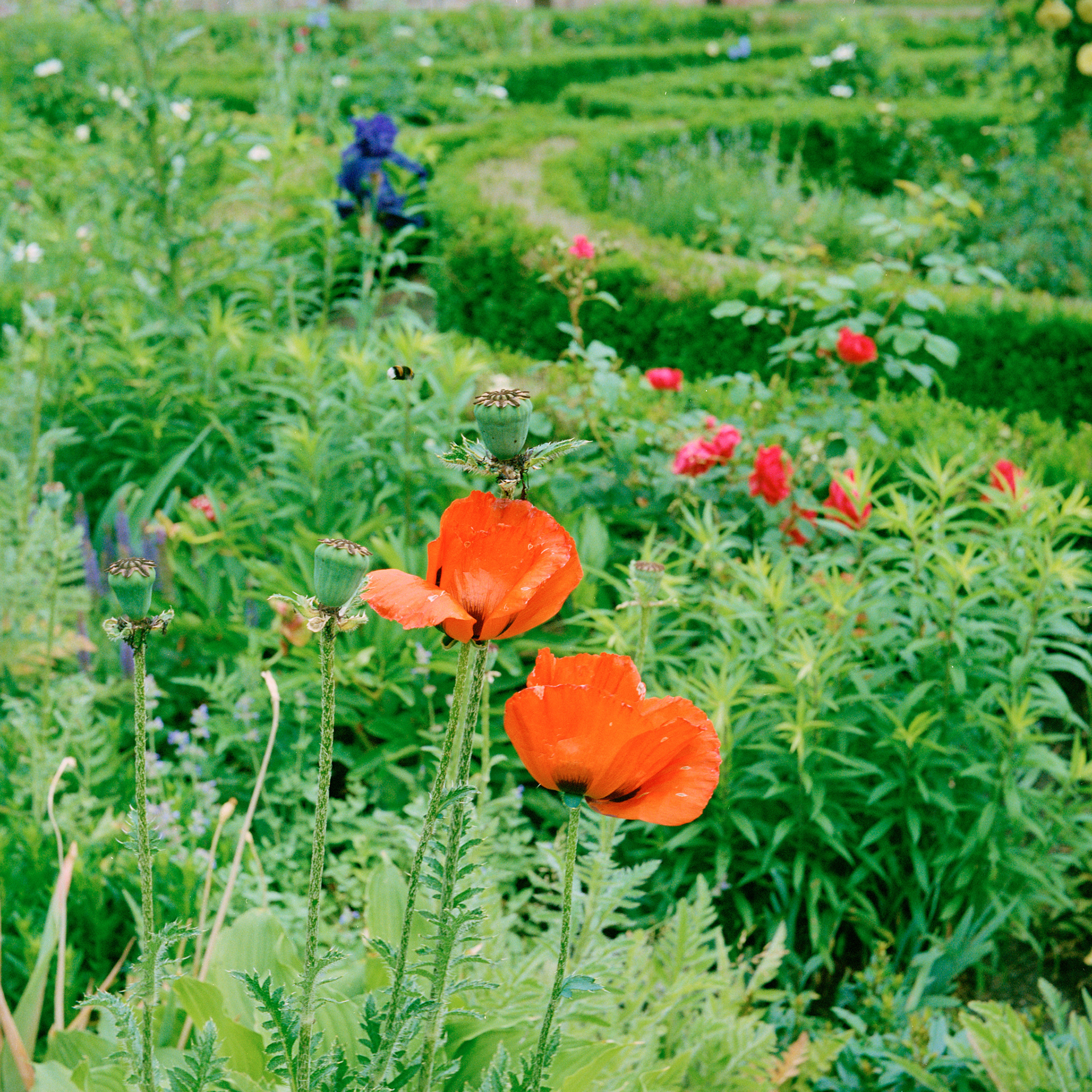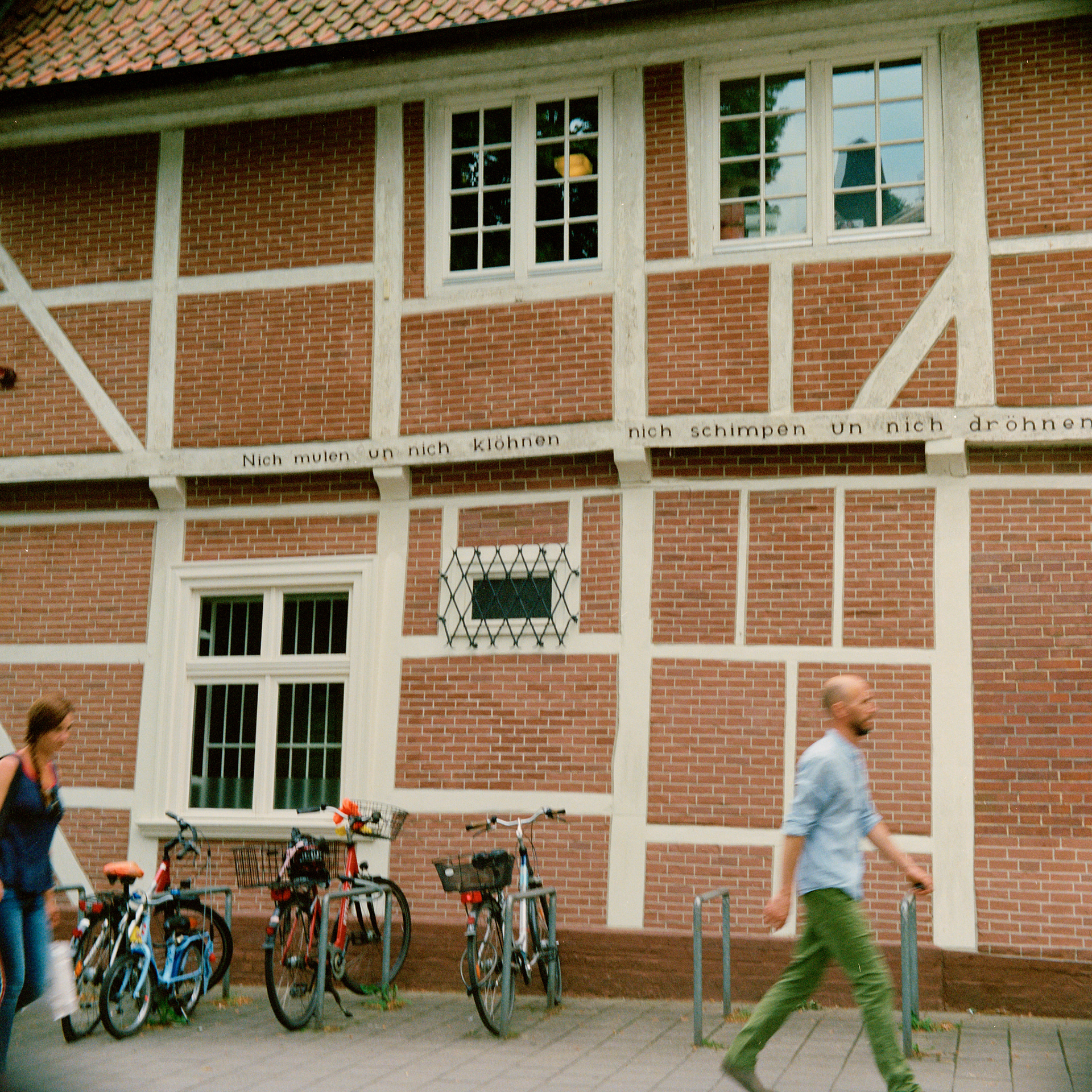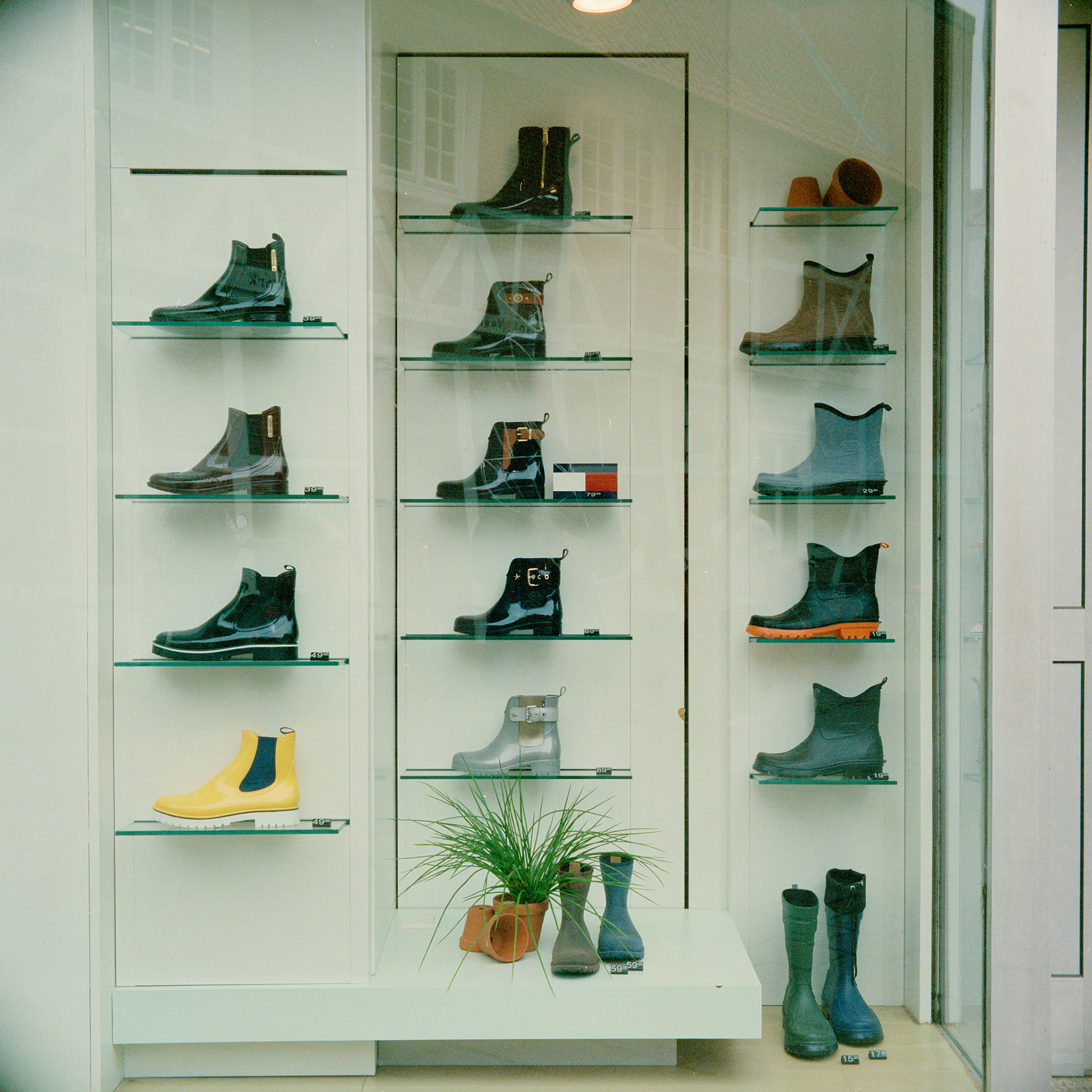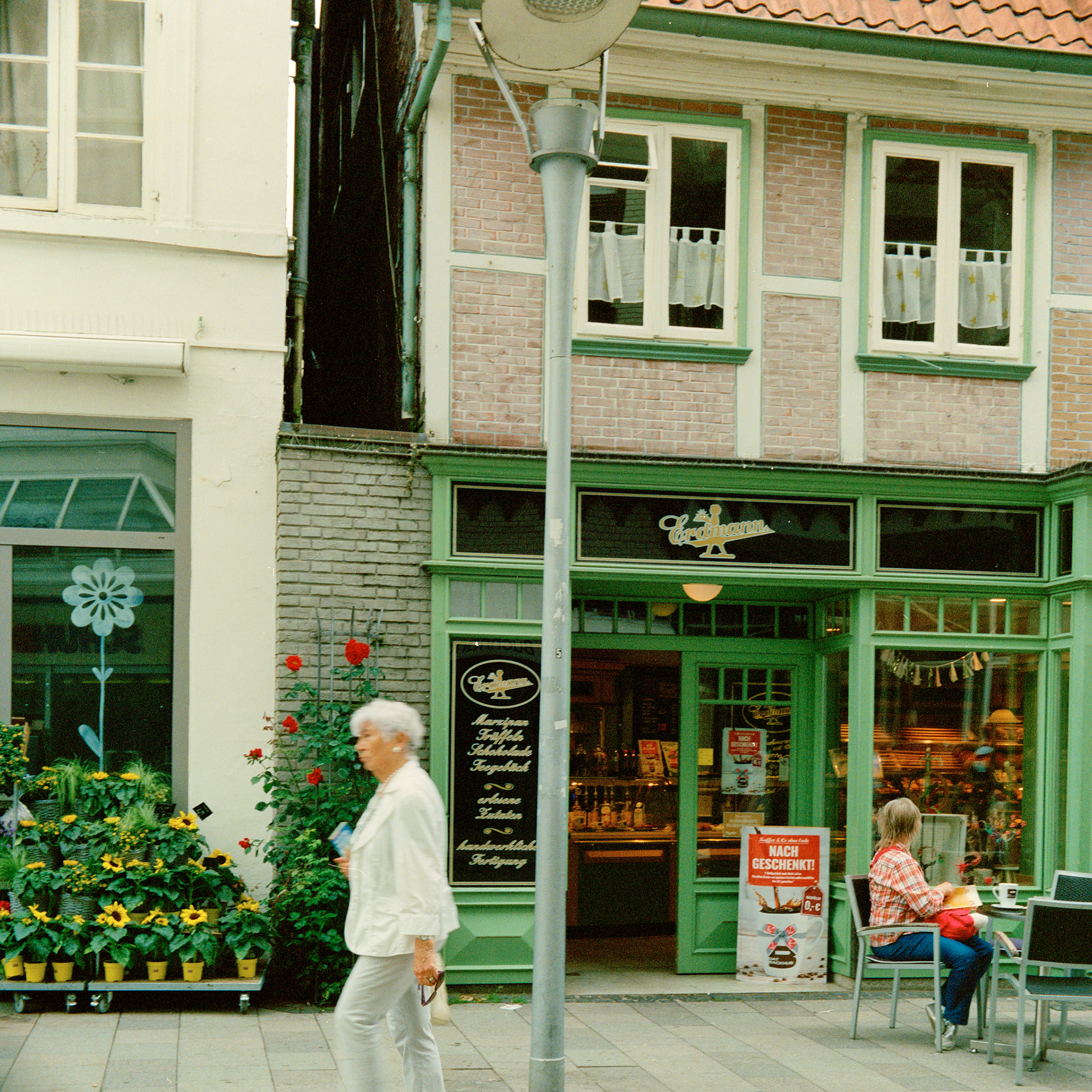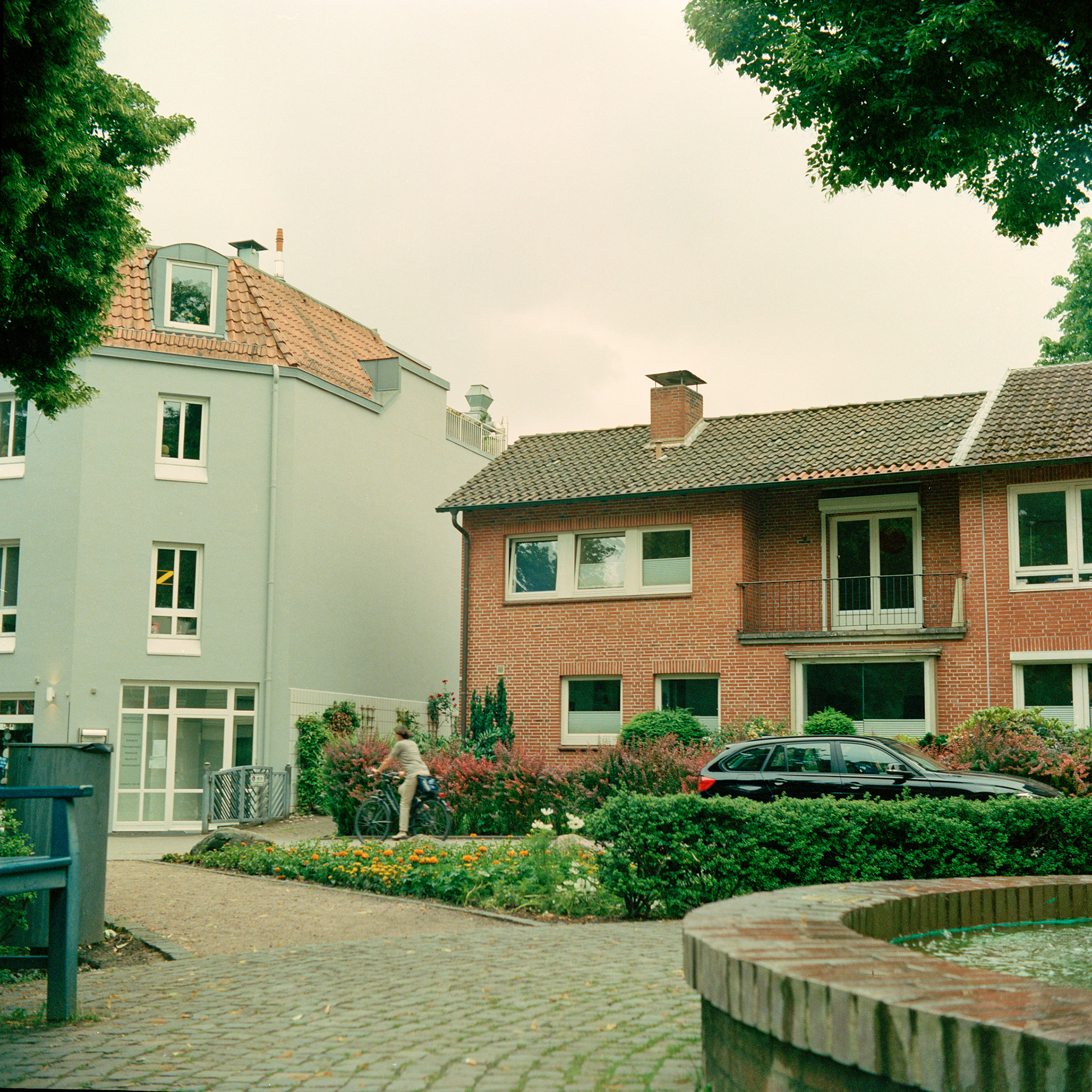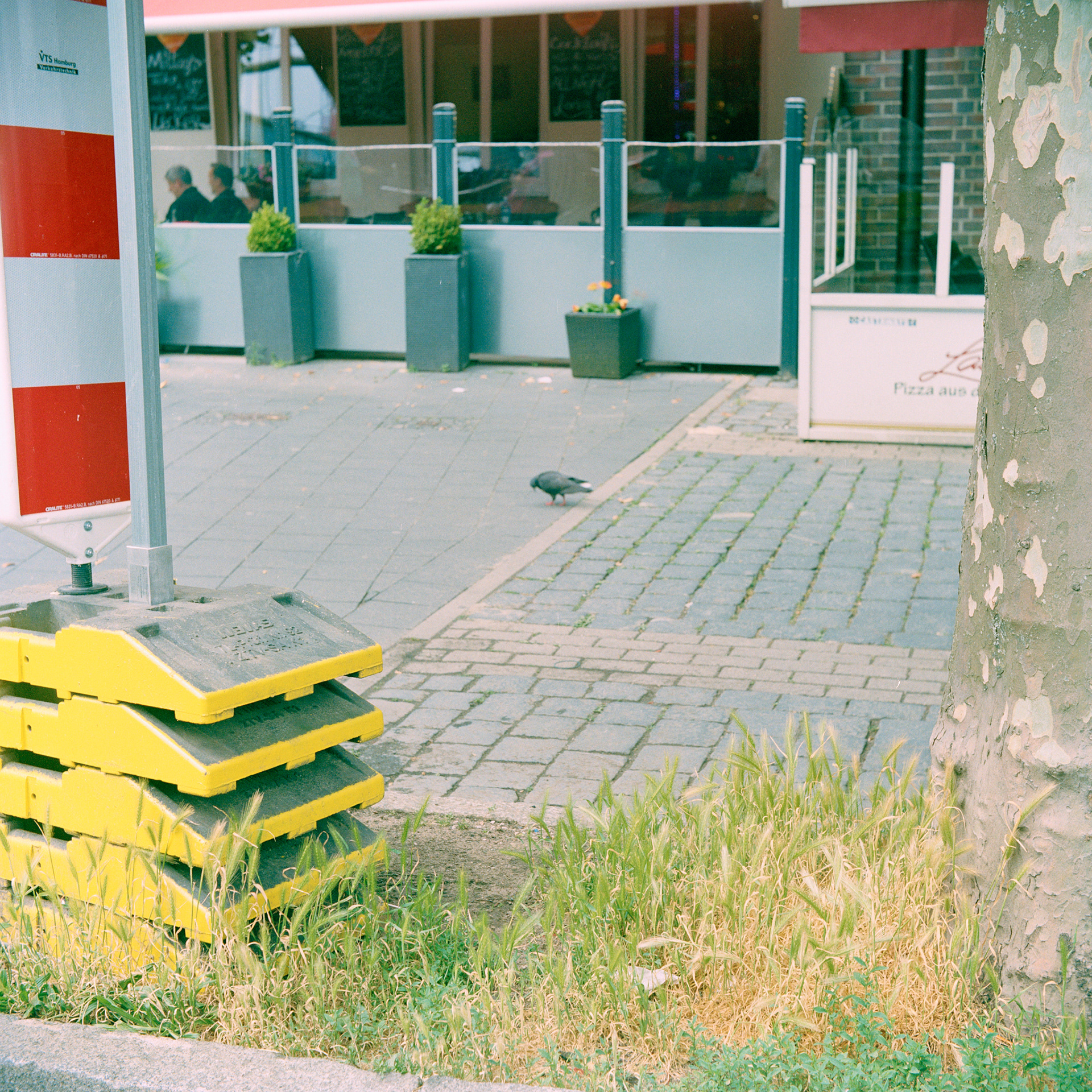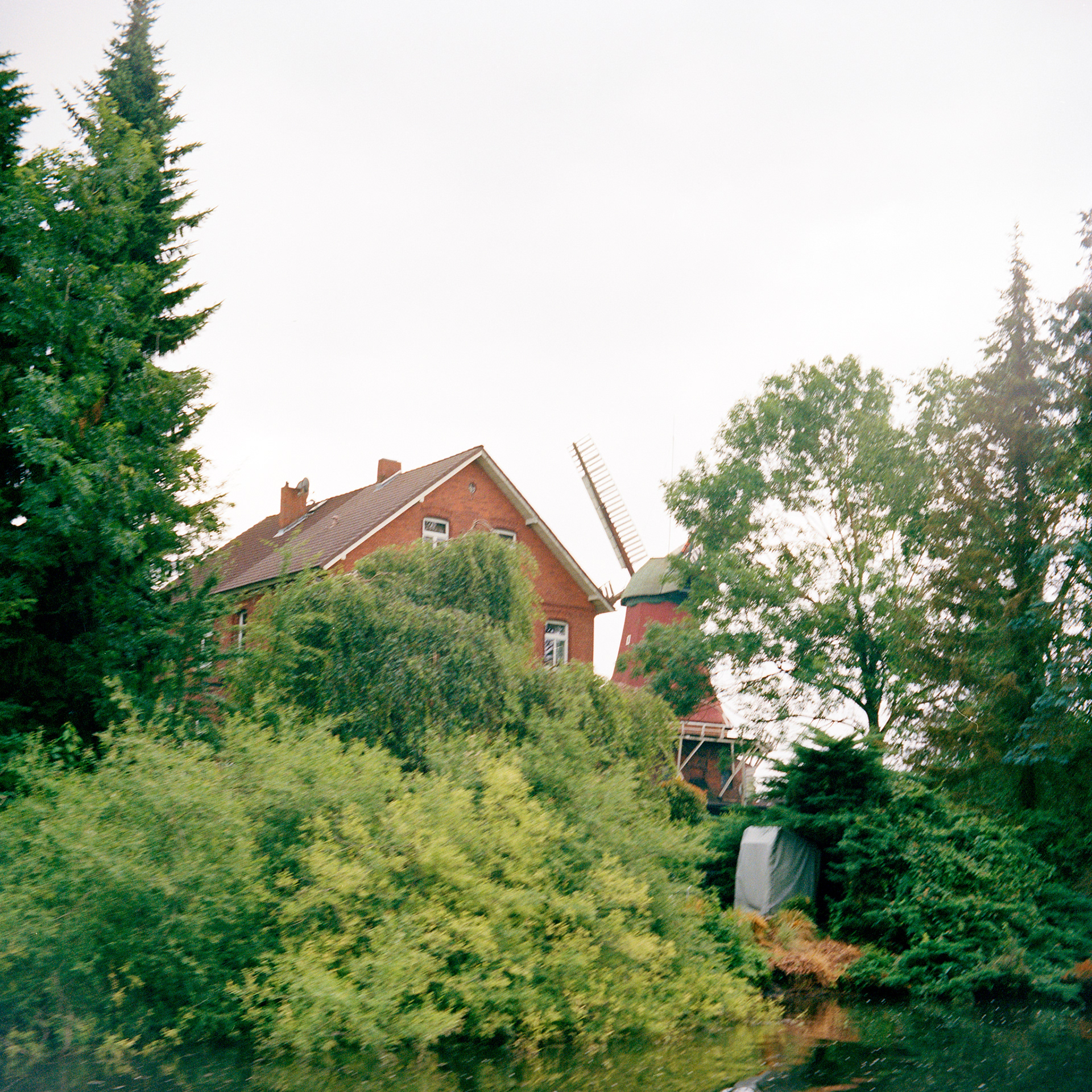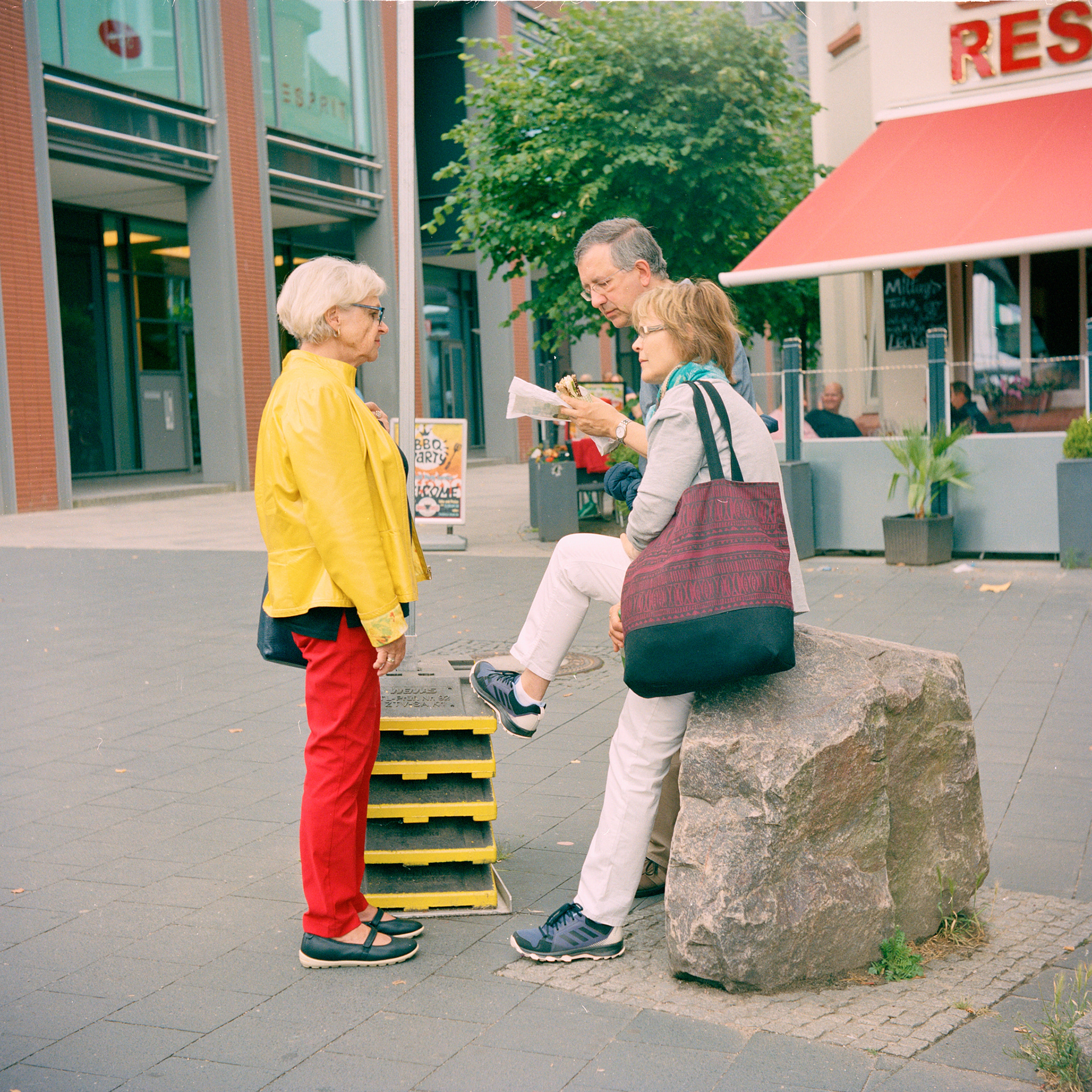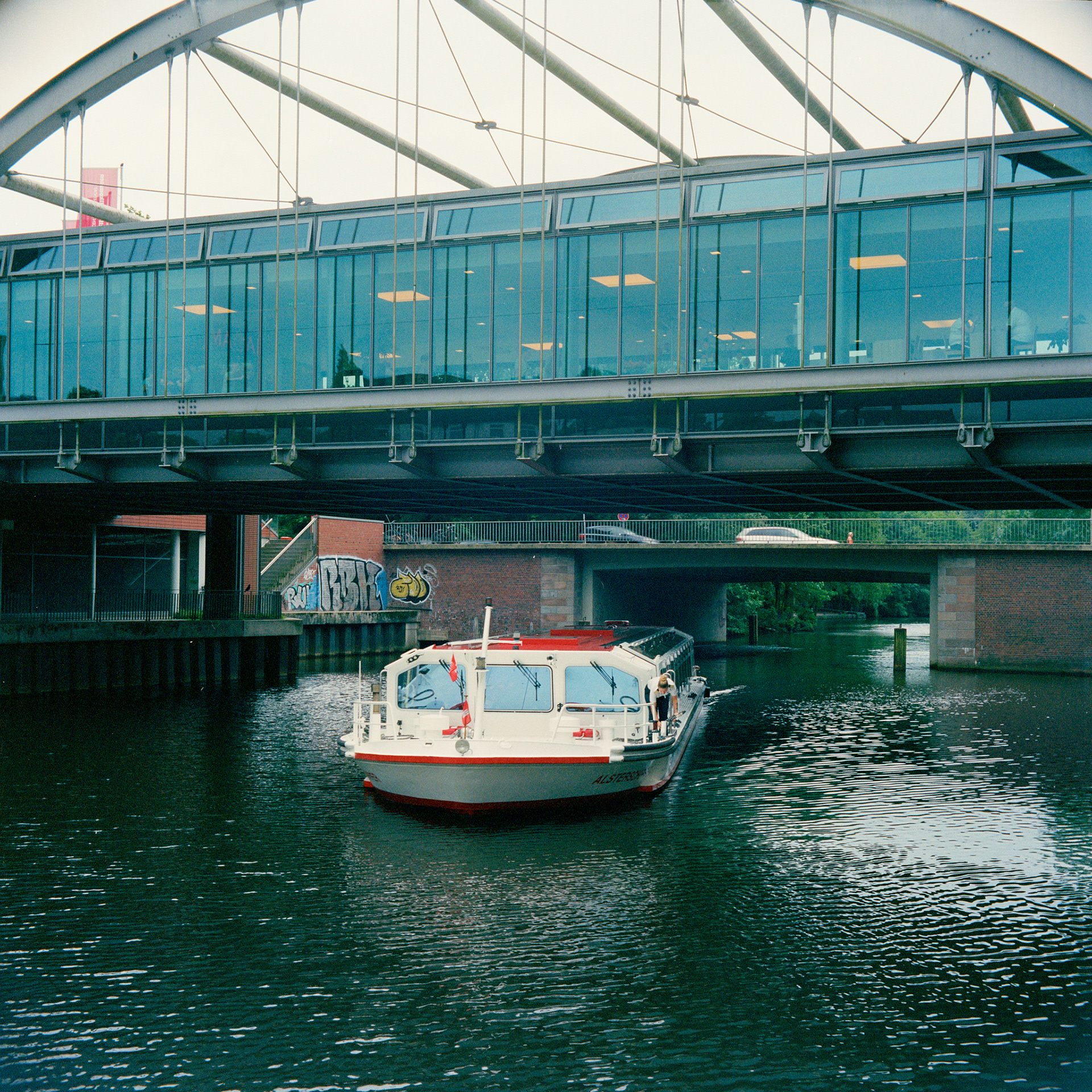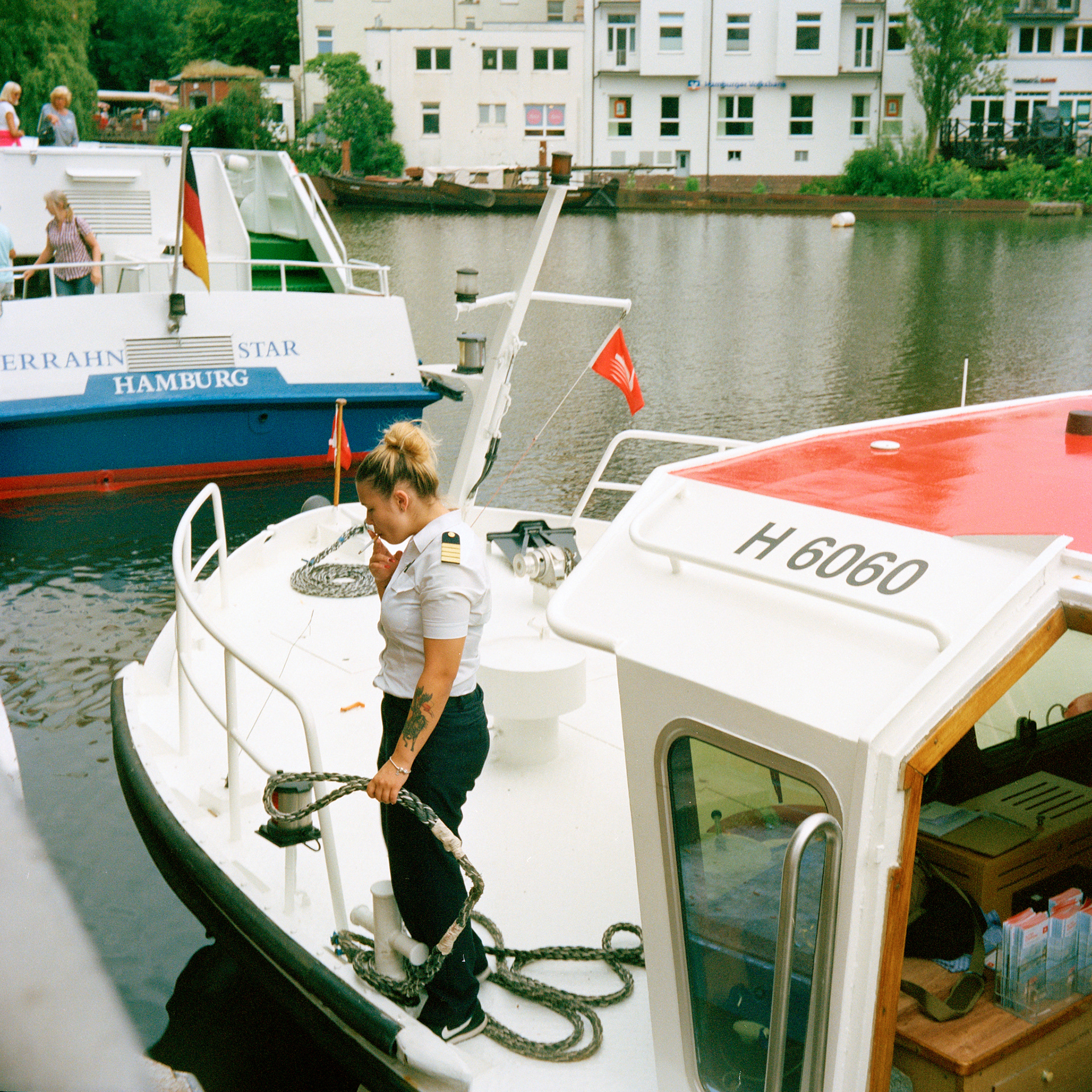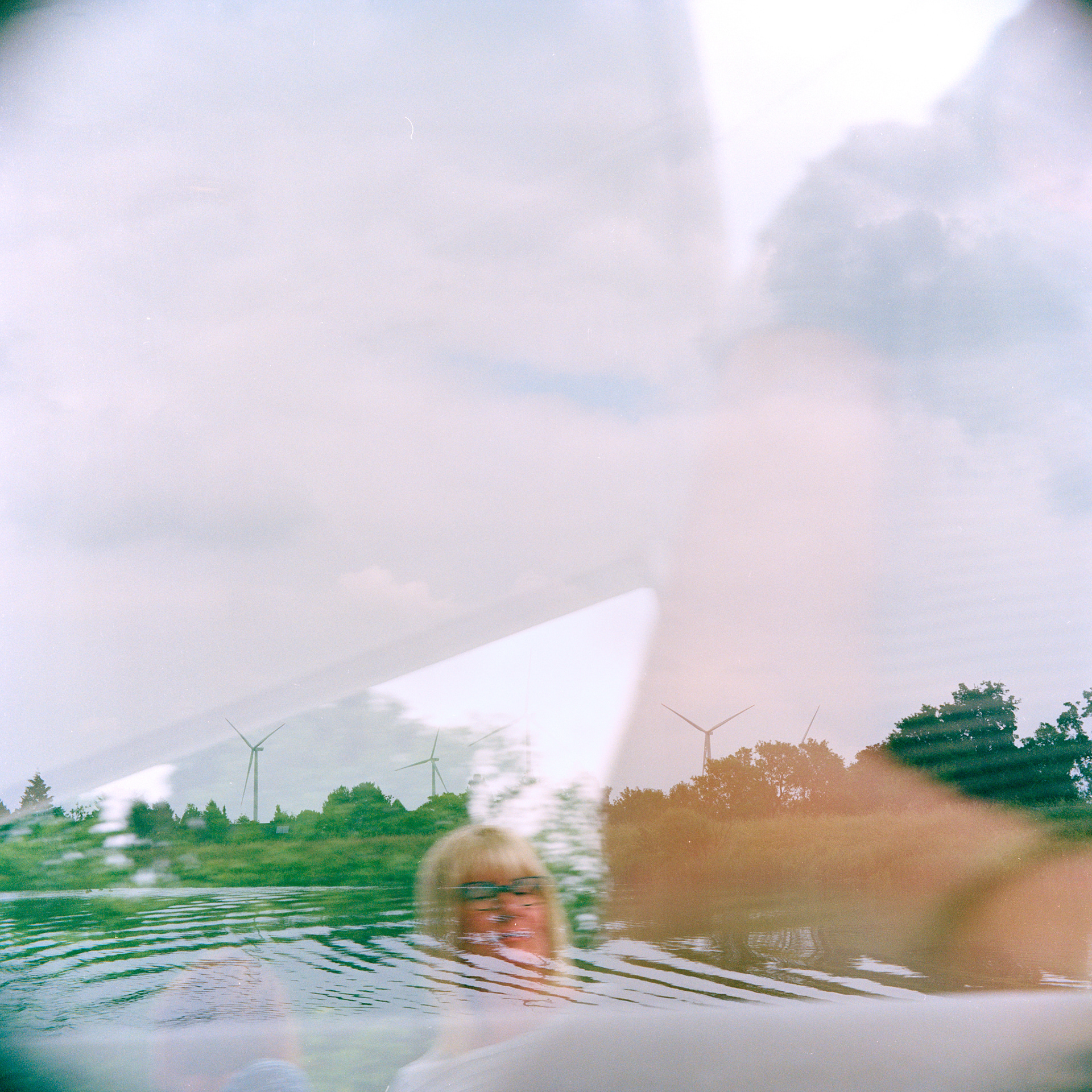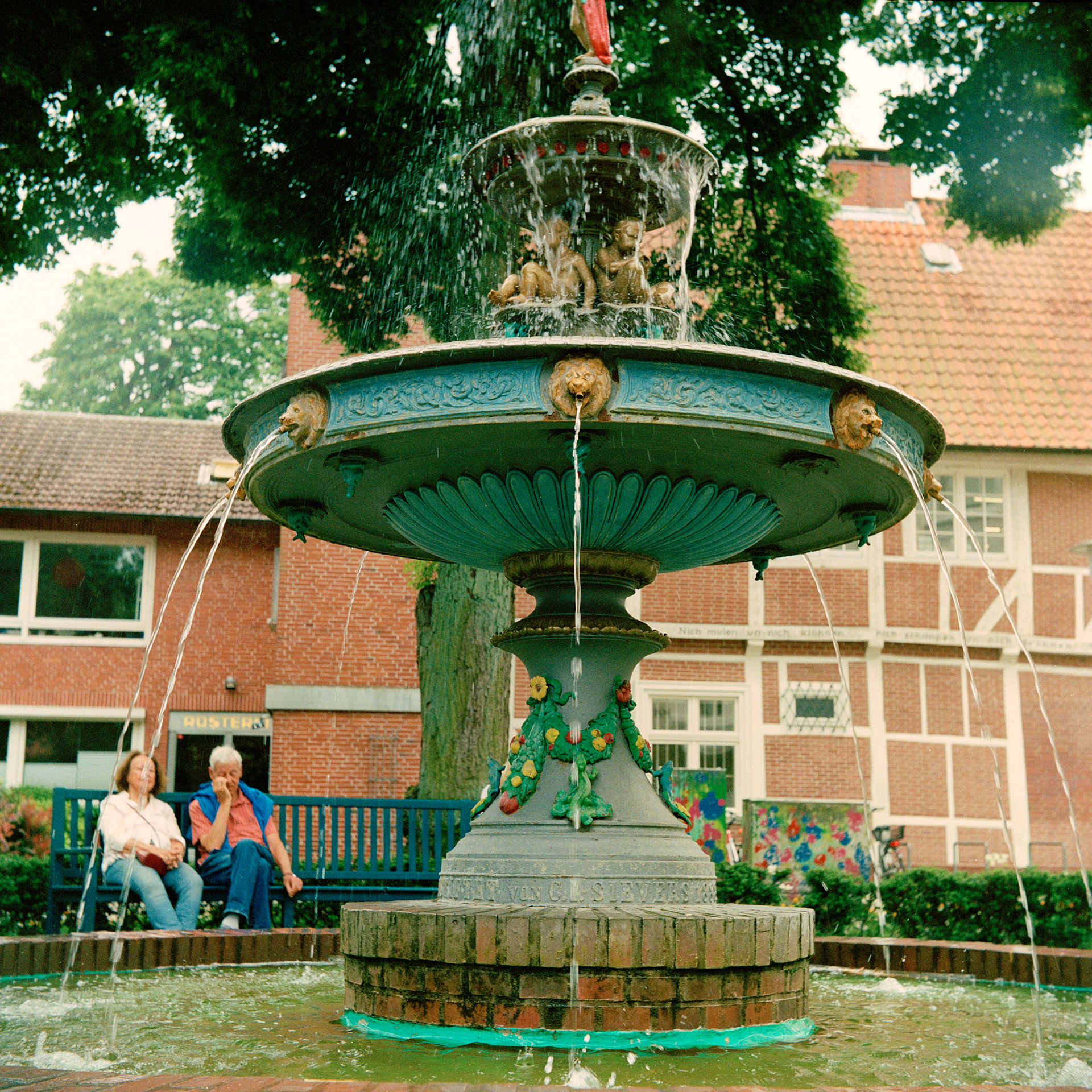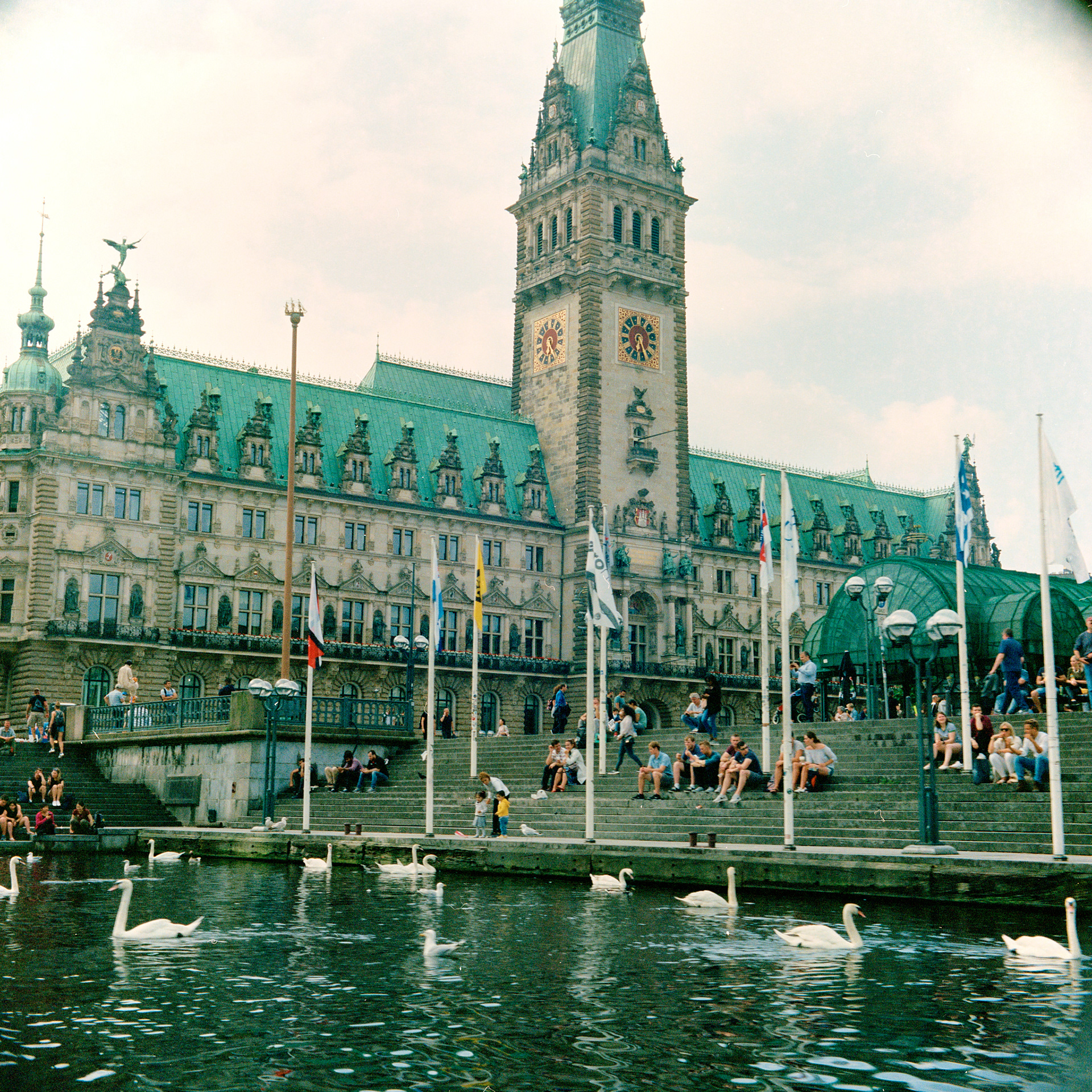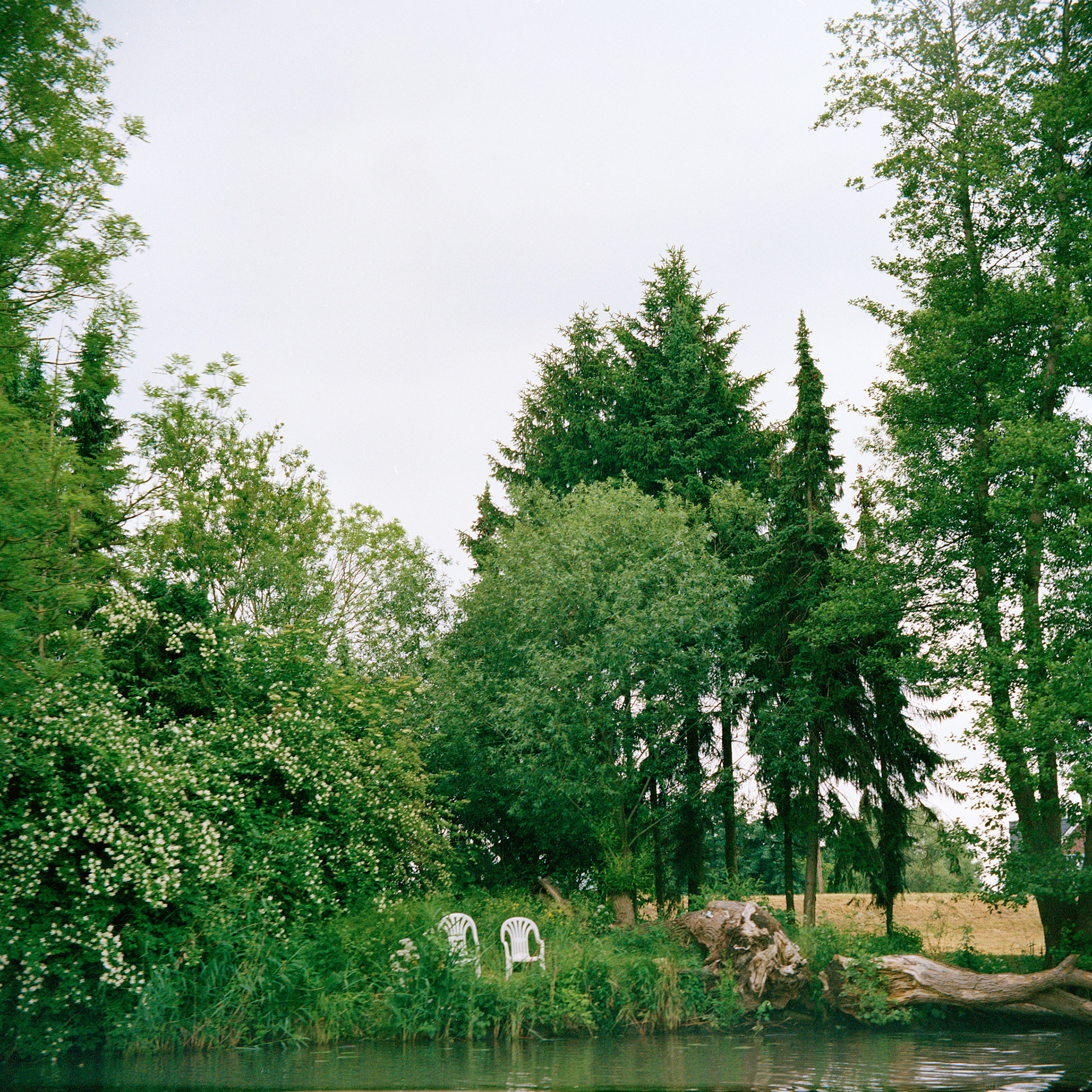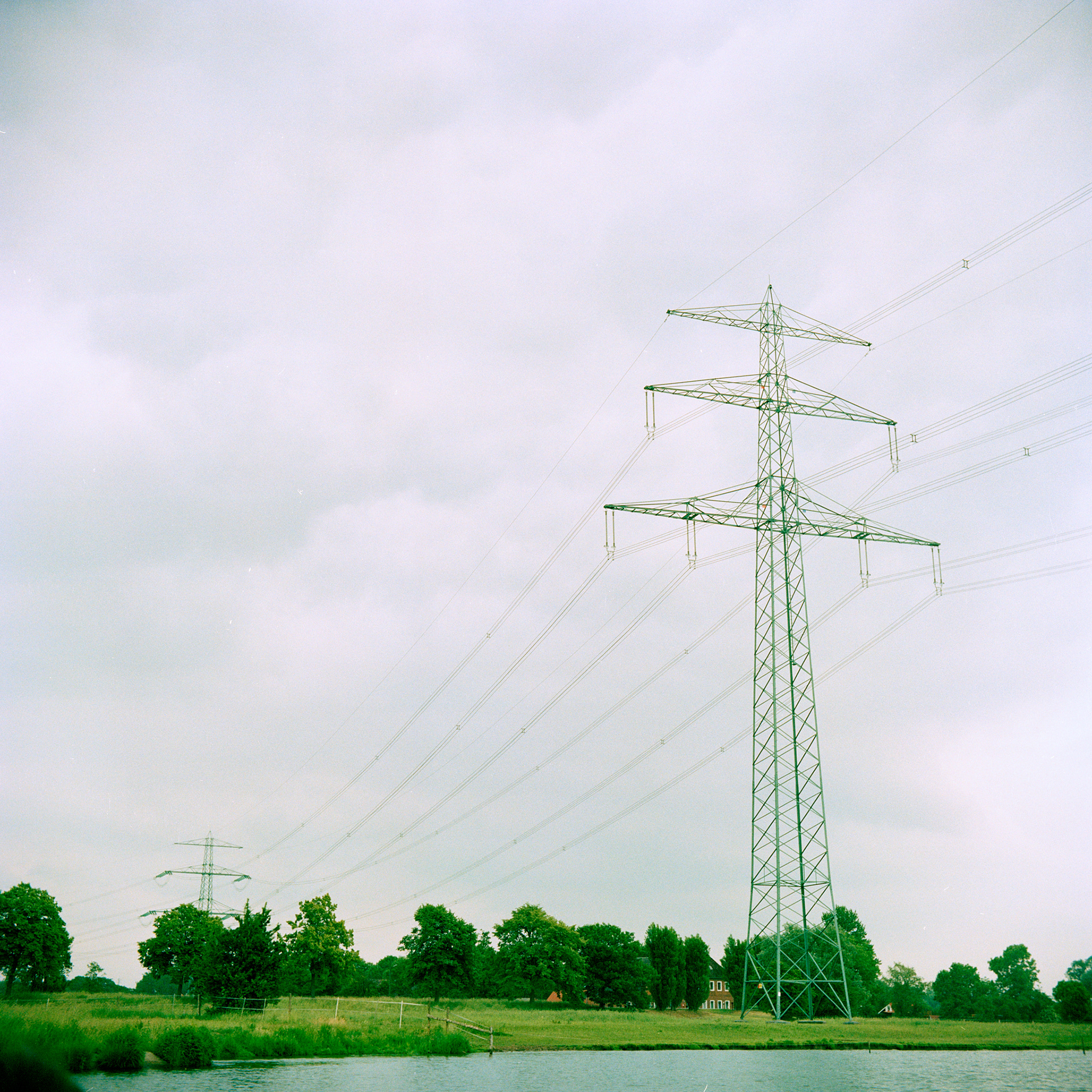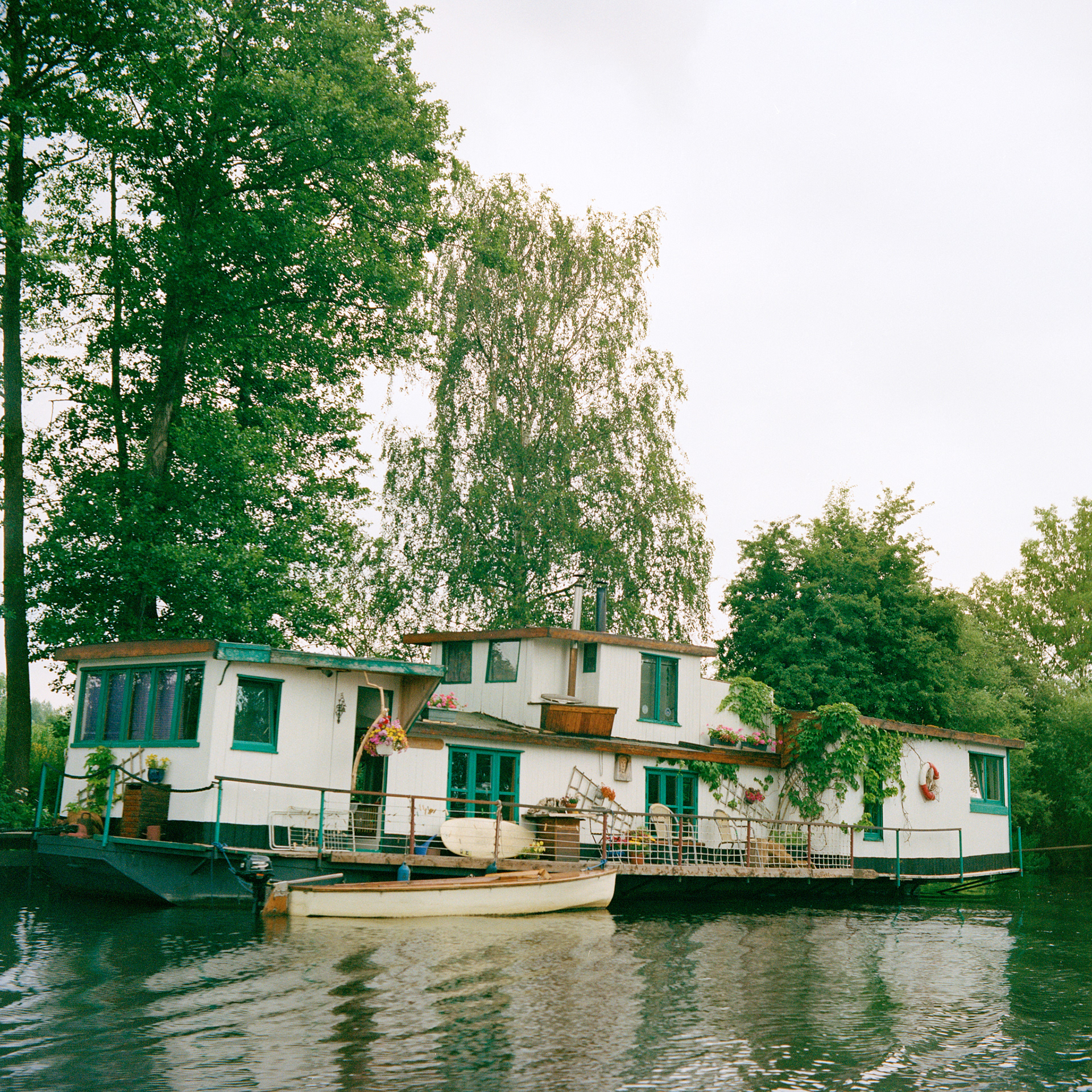My suitcase wheels click on the tile grout of the floor echoing in rhythm. I ask my Oma, ‘why are you running?’ as we go towards the checked bag carousel of the terminal.
Rolf, her cousin, who we are staying with in Hamburg, meets us at the airport. I learn that he test drives cars at the local dealership for a living. It feels that way as he navigates the stick shift through the city traffic.
Rolf lives in an apartment of a cottage in the the ‘vierlande’ meaning the four lands of Bergedorf in Hamburg. It is the countryside, where there are brick cottages that look the same, personal, neat and stylized rose gardens, bicycles paths, and small farm markets in the parking lots of the small grocery stores.
My Oma grew up in the city center. We stop by her old apartment on our way out of the city. As she faces the front door of the ground floor, she says, ‘it looks the same except that this was the only building standing.’ Everything else on this block use to be piles of rubble — black bricks, dirt, soot and ash that she use to play in. The only work after the war was to be a brick collector or brick layer. Once she found a silver jewelry box of a family who probably lived next door. It has their name and their crest and now lives on a dresser in her apartment in Long Island.
That evening after dinner, we finish our beer as the sun sets around nine o’clock. The room is warm golden beige with the light passing through translucent fabric shades. My Oma and Rolf move more quickly into German conversation and my Oma more infrequently does not translate. I took German lessons growing up but they now feel like a distant memory. I nod and laugh and look for words to understand and to hold onto as I slip deeper into the couch— becoming beige and golden like the light on the cushions and the dust in the air.
Rolf, her cousin, who we are staying with in Hamburg, meets us at the airport. I learn that he test drives cars at the local dealership for a living. It feels that way as he navigates the stick shift through the city traffic.
Rolf lives in an apartment of a cottage in the the ‘vierlande’ meaning the four lands of Bergedorf in Hamburg. It is the countryside, where there are brick cottages that look the same, personal, neat and stylized rose gardens, bicycles paths, and small farm markets in the parking lots of the small grocery stores.
My Oma grew up in the city center. We stop by her old apartment on our way out of the city. As she faces the front door of the ground floor, she says, ‘it looks the same except that this was the only building standing.’ Everything else on this block use to be piles of rubble — black bricks, dirt, soot and ash that she use to play in. The only work after the war was to be a brick collector or brick layer. Once she found a silver jewelry box of a family who probably lived next door. It has their name and their crest and now lives on a dresser in her apartment in Long Island.
That evening after dinner, we finish our beer as the sun sets around nine o’clock. The room is warm golden beige with the light passing through translucent fabric shades. My Oma and Rolf move more quickly into German conversation and my Oma more infrequently does not translate. I took German lessons growing up but they now feel like a distant memory. I nod and laugh and look for words to understand and to hold onto as I slip deeper into the couch— becoming beige and golden like the light on the cushions and the dust in the air.
